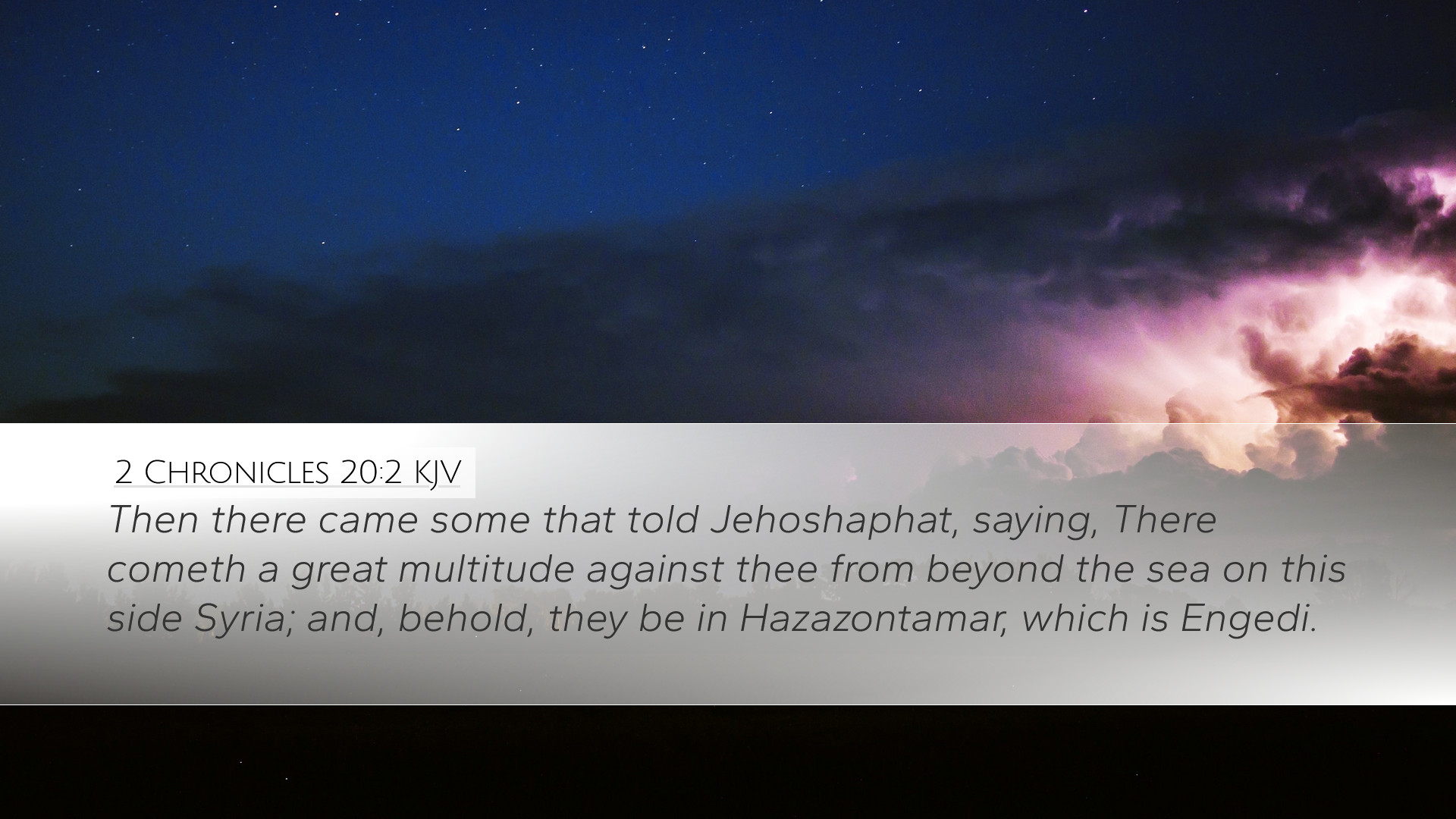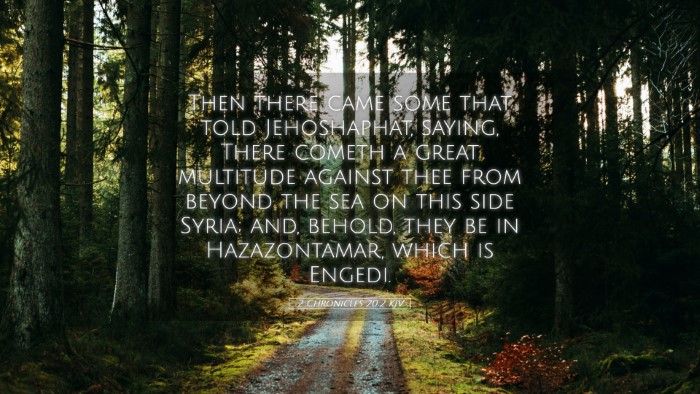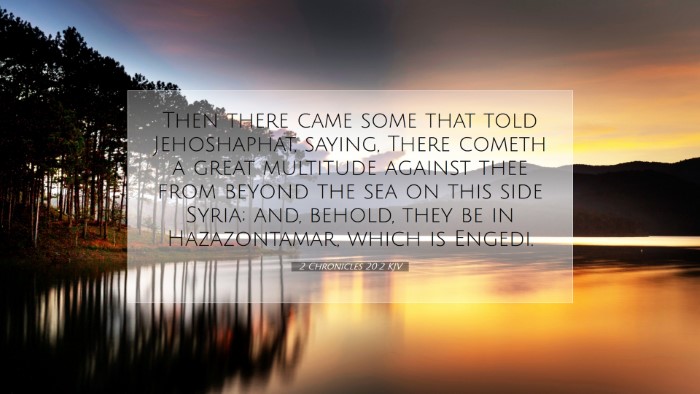Commentary on 2 Chronicles 20:2
Verse Analysis: "Then there came some that told Jehoshaphat, saying, There cometh a great multitude against thee from beyond the sea on this side Syria; and, behold, they be in Hazazon-tamar, which is Engedi."
Contextual Background
This verse falls within the historical narrative of King Jehoshaphat's reign over Judah. Jehoshaphat was a king known for his commitment to the Lord and his efforts to turn the nation back to the worship and obedience of God. The report of an impending invasion underscores a critical moment which tests not only the military readiness of Judah but also the spiritual posture of its leader.
The Threat from the Multitude
As noted in various commentaries, the term "great multitude" suggests an overwhelming force that presents a grave danger to the nation of Judah. Matthew Henry emphasizes the psychological impact such news has on leaders and their communities, highlighting how fear can permeate the atmosphere when danger is imminent. The reference to "beyond the sea" indicates that these enemies were organized and strategic, likely taking advantage of geographical and political vulnerabilities.
The Significance of the Location: Hazazon-tamar and Engedi
The mention of Hazazon-tamar, identified with Engedi, carries with it geographical and historical significance. Albert Barnes notes that Engedi was a notable location, often associated with David’s flight from King Saul, a place of refuge amidst adversity. This historical reference serves to remind the people of God's past deliverance and provides hope amidst the uncertainty of invasion.
The Leadership of Jehoshaphat
Jehoshaphat's reaction to this news is critical. Adam Clarke points out that a wise leader must remain level-headed in crisis situations. Jehoshaphat's initial response was to seek guidance from the Lord rather than panic or resort to immediate military action. This reflects a profound aspect of faith-based leadership, where reliance on divine wisdom supersedes reliance on human strength.
Theological Implications
The impending crisis invites deeper theological reflection on divine providence. This moment is an opportunity to explore how God orchestrates events—not merely to challenge his people but to lead them toward reliance and faith that is ultimately deeper and more resilient. The multitude signifies the spiritual and physical battles believers face, and the response of Jehoshaphat embodies the correct posture of seeking God in times of great distress.
Application for Today’s Believer
- Recognizing Threats: Just as Jehoshaphat faced a literal multitude, believers today encounter various spiritual, emotional, and societal challenges that can feel overwhelming.
- Seeking God: The text calls pastors and church leaders to model Jehoshaphat’s reliance on prayer and fasting, emphasizing the need for collective and individual supplication to God when faced with dire situations.
- Trusting God's Deliverance: The historical context reminds believers of God’s past faithfulness, encouraging them to trust in God's ongoing providence and care in the present circumstance.
Conclusion
2 Chronicles 20:2 serves as a reminder of the complex interplay between faith, leadership, and crisis response. This verse not only recounts a historical event but also imparts lessons that transcend time, urging contemporary believers to seek divine wisdom during troubling times. The narratives of past leaders like Jehoshaphat bolster the faith of today’s Christians, reminding them that God is an ever-present help in times of need.


